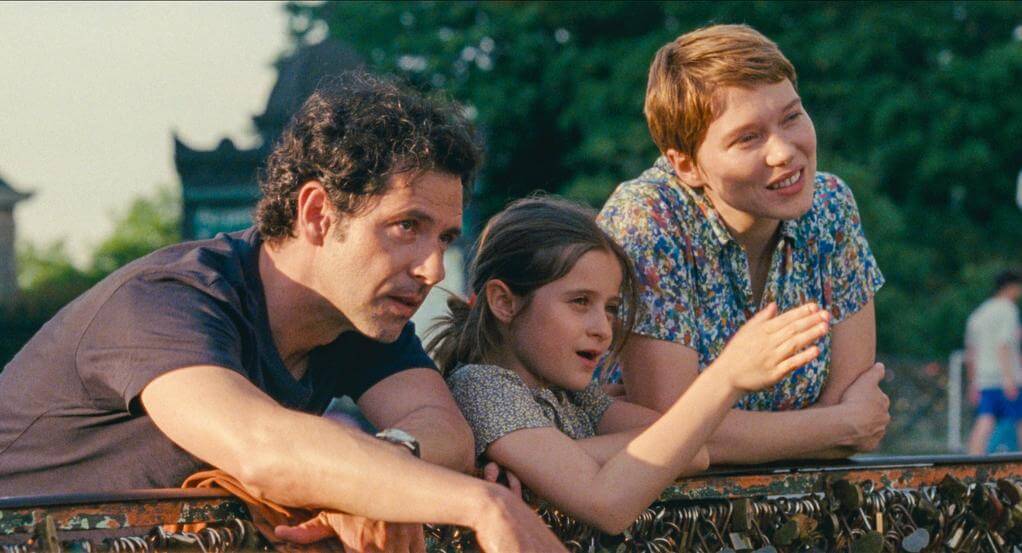Arguably demoted to the Directors’ Fortnight after screening in Competition last year with Bergman Island, Mia Hansen-Løve shows that the quality of her films has nothing to do with where they are placed. One Fine Morning is another strong slice-of-life drama by Hansen-Løve, with so much authenticity that the picturesque film sometimes hurts to watch.
One Fine Morning shows a director who is gradually ascending to mastery that fewer and fewer of her contemporaries, man or woman, can match. Starting with an opening beat that breathes so cinematically in its precision of what to show and what not to, you instantly know you are in safe hands. She packs all the exposition we need in the first 5-10 minutes without ever beating it over our heads. Compared to her previous films, it appears that she has upped the film grain even more this time, which is very much part of her design to lend her films authenticity. Her handheld long takes has never flowed this naturally and invisibly, her lighting is more informative than before, and the massive bookshelves of Things to Come return as an even more looming character.
It may deceive viewers easily that One Fine Morning is a “minor” entry to Hansen-Løve’s filmography, because “nothing really happens.” However, Hansen-Løve understands that big dramatic swings rarely happen in reality, and it is the small moments that quietly change our lives. She proves that it is not the story per se, but how a filmmaker treats the story that makes or breaks a film. It isn’t that her story is plain and undramatic – it has an infidelity love triangle that can easily slot into a classical melodrama – but she never pushes the buttons that tell us what to feel. Because the first hour is so unassuming, the second hour boils with power when the tension finally simmers to the surface. And she is not always an understated filmmaker, merely patient; she mines for it with big swings in the music when truths are finally confronted. But authenticity is always a key word in the Hansen-Løve universe; in fact, her two main actors said in the post-screening Q&A that they’ve never encountered a script or characters with this much authenticity before. Because her aesthetic and dramaturgy always reach authenticity, she is able to reveal the hard pains in life, with the added benefit of never torturing the audience.

This may be primarily a relationship drama, and it’s hard to look away from the parallels to Hansen-Løve’s turbulent love life with Olivier Assayas and, by extension, Assayas’ ex-wife Maggie Cheung Man-yuk. But Hansen-Løve has always been smart with auto-fictional elements, and the unacknowledged awareness that these characters are real – albeit with professions altered – only makes the emotions more powerful. If one finds this personal relationship drama light or inconsequential, One Fine Morning is also quietly about the industrialization of elderly care, how taking care of a loved one at their last moments has become a stressful, impersonal competition of snatching a hospice bed when it’s still warm from the person who died on it. And even though Hansen-Løve’s own love triangle happened all the way back in the 2000s, One Fine Morning is set in the year of the mentioned Frozen 2‘s release – 2019, i.e. the last year before the pandemic hit. We know isolation and separation are coming for these characters, which grounds the film with even more poignancy and gravitas.
Hansen-Løve may never make a film with a big statement in capital letters, but that doesn’t mean she is a filmmaker to be overlooked. Her final shot in One Fine Morning reaches a bittersweet peak that reminded me of the quietly powerful family dramas by Hirokazu Kore-eda. One Fine Morning is another addition to her filmography that is quickly solidifying as one of the strongest in current world cinema.
